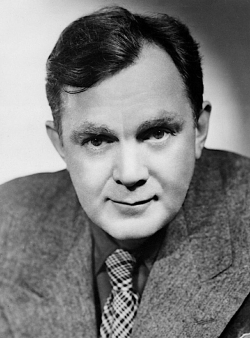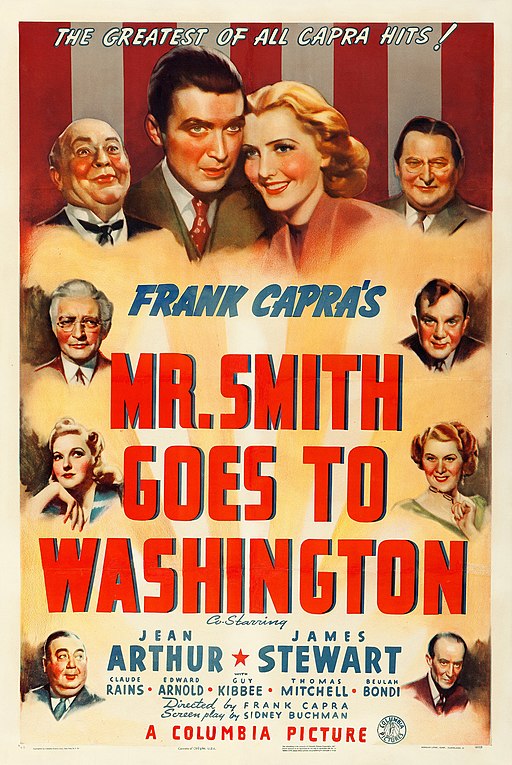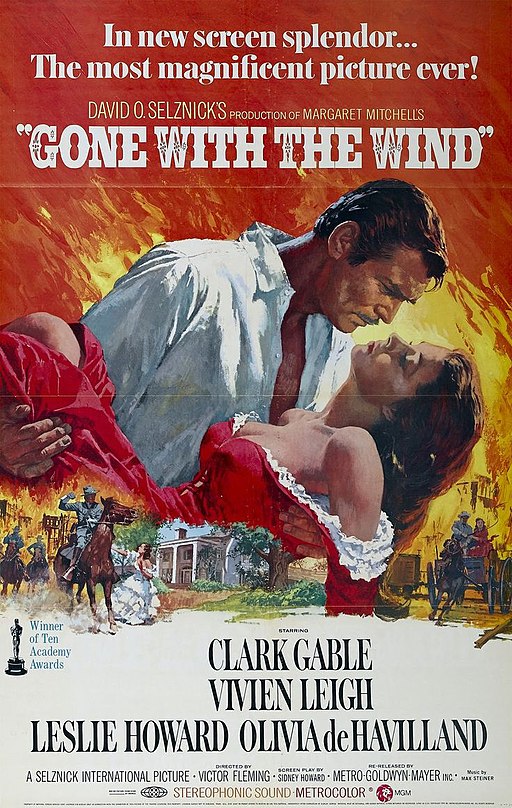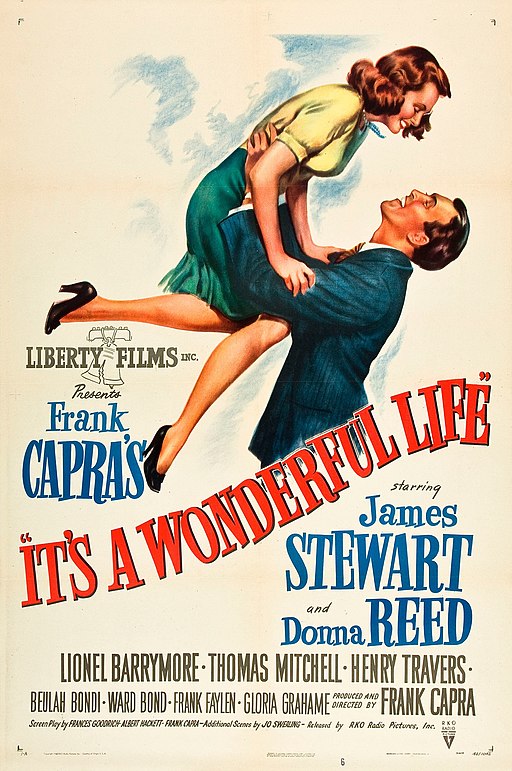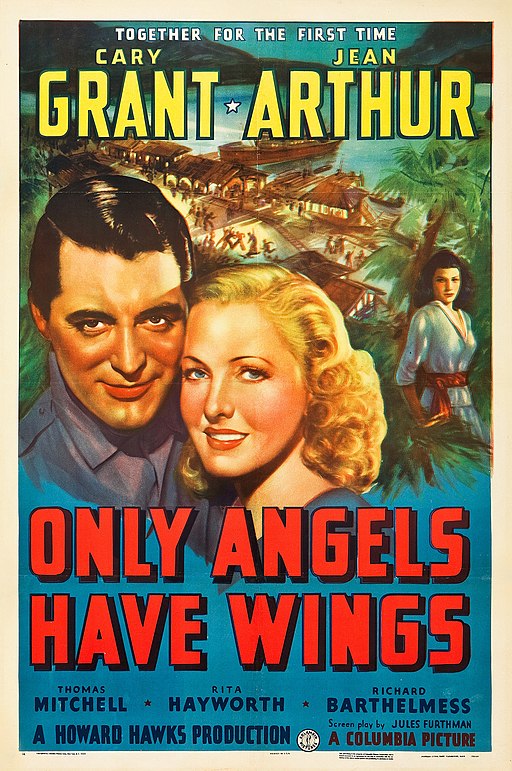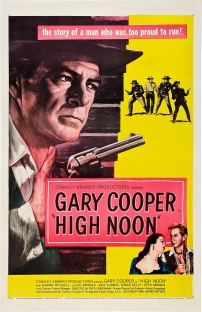Thomas Mitchell
back| Full Name | Thomas John Mitchell |
| Stage Name | Thomas Mitchell |
| Born | July 11, 1892 |
| Birthplace | Elizabeth, New Jersey, U.S. |
| Died | December 17, 1962 |
| Buried | Chapel of the Pines Crematory, Los Angeles, California |
| Married to | Anne Stuart Brewer (married 1915; divorced 1935; remarried 1941 until his death) - Rachel Barnes Hartzell (married 1937; divorced 1939) |
| Children | One daughter, Anne, with Rachel Barnes Hartzell |
| Notable films | Stagecoach (1939) - Gone with the Wind (1939) - Mr. Smith Goes to Washington (1939) - It's a Wonderful Life (1946) - High Noon (1952) |
Thomas Mitchell
Biography and Movie Career
Thomas Mitchell (1892–1962) was a versatile American actor celebrated for his heartfelt portrayals of everyday men. Born in Elizabeth, New Jersey, he began as a journalist before turning to stage acting in the 1910s.
He became a prolific character actor in Hollywood’s Golden Age, shining in classics like Stagecoach (1939), Gone with the Wind, It’s a Wonderful Life, and Mr. Smith Goes to Washington. In 1939 alone, he appeared in five landmark films and won an Oscar for Stagecoach. He later earned a Tony and an Emmy, becoming the first male actor to win the Triple Crown of Acting.
Known for his warm, naturalistic style, Mitchell was beloved by peers and directors alike. He died of cancer in 1962, leaving behind a legacy of rich, human performances that continue to resonate across generations.
Related
Thomas Mitchell (1892 – 1962)
The Soul of the Supporting Cast
Thomas John Mitchell was born on July 11, 1892, in Elizabeth, New Jersey, into a family of Irish immigrants. His upbringing was shaped by a household that valued intellect, storytelling, and hard work. His father and brother were both newspaper reporters, and journalism seemed the natural path for the young Thomas. He followed suit after completing high school, becoming a reporter himself. But even in these early years, his talent for words and his love for drama began to emerge in small, telling ways.
Early Years and the Shift to Acting
Mitchell’s experience in journalism sharpened his observational skills and deepened his understanding of human nature—qualities that would later enrich his performances as an actor. Still, the world of newspapers didn’t satisfy his creative urges. He began writing and performing comedy sketches, and soon made a bold shift to acting full-time. By 1913, he had joined Charles Coburn's Shakespearean repertory company, touring and refining his stage craft.
Mitchell’s Broadway debut came in 1916, and he quickly became a fixture in the American theater scene—not only as an actor, but also as a playwright and director. He co-wrote several plays, most notably Little Accident, which proved popular enough to be adapted into multiple films.
Rise to Hollywood Success
By the 1930s, Thomas Mitchell had transitioned into film. He brought with him a stage-honed confidence, a nuanced sense of character, and a voice that could carry both gravitas and warmth. His breakthrough role came in Frank Capra’s Lost Horizon (1937), but it was 1939—one of Hollywood’s most golden years—that truly catapulted Mitchell to prominence.
In that single year, he appeared in an astonishing five major films:
- Doc Boone in Stagecoach, a performance that won him the *Academy Award for Best Supporting Actor
- Gerald O’Hara, Scarlett’s father, in Gone with the Wind
- Diz Moore, the savvy journalist, in Mr. Smith Goes to Washington
- Kid Dabb, a disgraced pilot, in Only Angels Have Wings
- Clopin, the beggar king, in The Hunchback of Notre Dame
Each role was markedly different, yet Mitchell brought authenticity and soul to all of them. He was never a leading man in the traditional sense, but his presence added emotional weight and richness to every film he touched.
Throughout the 1940s and '50s, Mitchell continued to shine in classic films like:
- It’s a Wonderful Life (1946) – as the forgetful but lovable Uncle Billy
- High Noon (1952) – as the politically pragmatic Mayor Jonas Henderson
- The Hurricane (1937) and The Keys of the Kingdom (1944) – showcasing his dramatic range
He was a master of supporting roles, an actor who never overplayed his hand but always made an impression.
Triple Crown of Acting
Thomas Mitchell holds a rare distinction in the entertainment world: he was the first male actor to win the Triple Crown of Acting, having received:
- An Oscar for Stagecoach (1939)
- An Emmy for his performance in the medical drama The Doctor (1953)
- A Tony Award for his role in the Broadway musical Hazel Flagg (1953)
This trifecta speaks volumes about his versatility across stage, screen, and television.
Personal Life and Marriages
Thomas Mitchell was known among colleagues for his intelligence, quick wit, and affable personality. He married Anne Stuart Brewer in 1915, though the marriage ended in divorce in 1935. He then married Rachel Barnes Hartzell in 1937, a union that produced his only child, a daughter named Anne, but it too ended in divorce after just two years. Interestingly, he later remarried Anne Stuart Brewer in 1941, and the couple remained together until his death.
Despite his fame, Mitchell kept his private life relatively low-key. He enjoyed literature and writing, often returning to the pen even during his acting years. He was known to be introspective and intellectually curious, with a deep appreciation for classical art and music. He also maintained a close-knit circle of friends in the theater and film community and mentored younger actors.
Final Years and Death
Mitchell continued acting into the early 1960s, appearing in TV shows and touring stage productions. However, his health began to decline. He was diagnosed with peritoneal mesothelioma, a rare and aggressive cancer linked to asbestos exposure—a common risk in older buildings and theater venues of his era.
On December 17, 1962, Thomas Mitchell died in Beverly Hills, California, at the age of 70. His body was cremated, and his ashes were interred at the Chapel of the Pines Crematory in Los Angeles.
Legacy
Thomas Mitchell’s legacy is that of a consummate character actor—one who never sought the spotlight for its own sake, but who illuminated every scene he graced. He brought dignity to the supporting role and helped elevate American cinema through his intelligence, emotional depth, and sheer craft. To this day, audiences remember him best not as a star, but as the heart of the ensemble—a true actor’s actor.
Thomas Mitchell – Physical Features
- Height: Approximately 5 feet 10 inches (178 cm)
- Build: Medium; stocky to slightly heavyset in later years
- Hair: Dark brown (later graying)
- Eyes: Brown
- Facial Features:
- Expressive, slightly rounded face
- Prominent nose and deep-set eyes
- Often wore a mustache in his middle-to-late career
- Voice: Warm, slightly gravelly; well-suited for dramatic and comedic roles
- Presence:
- Known for his non-threatening, familiar demeanor
- Carried himself with a balance of humility and quiet authority
Things You Should know about Thomas Mitchell
Analysis of Thomas Mitchell’s Acting Style
Thomas Mitchell's acting style is one of the most compelling examples of classic American character acting—subtle, richly textured, and emotionally resonant.
A Master of Emotional Nuance
Thomas Mitchell excelled in bringing depth and dimension to supporting roles. His performances were marked by a quiet naturalism that made his characters instantly relatable. Whether playing a doctor, a drunk, a father, or a public official, he carried with him an inner emotional life that audiences could feel even when he wasn't speaking. He had a gift for imbuing his roles with warmth, humanity, and quiet authority without ever overshadowing the leads.
His emotions were never theatrical for their own sake. Instead, they simmered beneath the surface—surfacing in a trembling voice, a sidelong glance, or a weary shrug. He understood restraint. That’s why his most moving performances often involved sorrow, loyalty, disappointment, or quiet resolve, rather than grand gestures.
Voice and Physicality
Mitchell’s voice was expressive and layered—mellow, slightly rough, with a cadence that could shift from casual warmth to stinging wit or grave authority. He often used pauses and inflection to great effect, especially when delivering exposition or wise, world-weary observations.
Physically, he was economical but specific. He didn’t rely on exaggerated gestures. Instead, he often leaned into a scene with a relaxed posture, as if inviting you into his character’s world. A slouch when playing the weary Doc Boone in Stagecoach, a fumbling panic as Uncle Billy in It’s a Wonderful Life, a certain stiff dignity as Gerald O’Hara in Gone with the Wind—these were not accidents. Mitchell used his body to show a character’s class, age, burden, or background without drawing attention to the craft behind it.
Versatility with Consistency
Despite his wide range—comic, tragic, folksy, refined—there was a thread of integrity that ran through nearly all his roles. Mitchell had the ability to be deeply sympathetic, even when his characters were flawed. He played alcoholics and fools with dignity, and officials and patriarchs with vulnerability. This ability to make even morally grey or troubled men feel human and understandable is part of what made his work resonate so deeply.
He could disappear into period pieces (Gone with the Wind, Buffalo Bill, The Hunchback of Notre Dame) as easily as into modern dramas or light comedies. Yet his characters never felt generic. He brought a kind of lived-in authenticity, as though he knew the character’s life history even if the script didn’t explain it.
Subtle Humor and Tragic Depth
Mitchell had a twinkle-in-the-eye quality that made him an effective comedic actor—his timing was impeccable, and his reactions were always grounded in character, never just punchline delivery. In comedies, he never tried to “be funny” but instead allowed humor to emerge naturally from his characters’ quirks and honesty.
At the same time, there was often a hint of melancholy beneath his roles. In It’s a Wonderful Life, Uncle Billy is a tragic figure wrapped in comedy—a man whose forgetfulness nearly brings ruin. Mitchell made you feel sorry for him even as you chuckled. That duality—where laughter and heartbreak coexist—is a hallmark of his acting.
An Actor Who Served the Story
Thomas Mitchell’s greatest artistic strength may have been his humility. He never tried to steal a scene, but he always made it better. He served the story, the director, and his fellow actors. In doing so, he lifted every project he was part of.
His acting style reflected not just talent but also empathy—for his characters, for the audience, and for the human condition. Whether he played a drunken doctor, a rambling uncle, a wise mayor, or a broken-hearted father, he made them feel real, lived-in, and—most importantly—understood.
Awards and Recognition
Academy Awards (Oscars)
-
Best Supporting Actor (Winner)
Film: Stagecoach (1939)
Role: Doc Josiah Boone
This performance as a drunken but skilled doctor earned him the Oscar at the 12th Academy Awards. It remains one of the most iconic supporting roles in classic Western cinema.
Primetime Emmy Awards
- Best Actor in a Leading Role (Drama) (Winner)
Show: The Doctor (NBC, 1952–53)
Mitchell portrayed Dr. Matthew Conroy in this anthology series. He won the Emmy in 1953, becoming one of the earliest actors to be recognized in the dramatic television category.
Tony Awards
- Best Actor in a Musical (Winner)
Show: Hazel Flagg (Broadway, 1953)
Mitchell played Wallace Cook, a hard-boiled reporter. His dynamic stage presence and comic timing in this musical adaptation of Nothing Sacred won him the Tony Award.
Triple Crown of Acting
- Academy Award (Film)
- Emmy Award (Television)
- Tony Award (Theater)
Thomas Mitchell was the first male actor in history to win all three of these major acting awards, marking him as one of the most versatile and accomplished performers of his time.
Hollywood Walk of Fame
- Star on the Hollywood Walk of Fame
Location: 1651 Vine Street
Awarded for his contributions to motion pictures.
Other Honors & Recognition
- Critical Acclaim for 1939 Work:
Mitchell was widely praised by critics for appearing in five landmark films in 1939 (Stagecoach, Gone with the Wind, Mr. Smith Goes to Washington, Only Angels Have Wings, The Hunchback of Notre Dame). Though only one earned him an Oscar, all were hailed as major artistic achievements. - Legacy Honors:
While he received no formal lifetime achievement awards before his death, Mitchell is frequently cited in retrospectives and scholarly studies of Hollywood’s Golden Age as one of the finest character actors of the era.
Memorable Lines from Films
Stagecoach (1939) – as Doc Boone:
"I'll be all right in a minute. I'm a little drunk, that's all."
A classic Mitchell moment—delivered with humor and resignation. This line perfectly captures the charm and vulnerability of the flawed but lovable doctor, and helped earn him an Academy Award.
It’s a Wonderful Life (1946) – as Uncle Billy:
"George, George, they’ll run you out of town! I’m no good, George! I—"
This line is delivered in a moment of emotional breakdown after Uncle Billy loses $8,000. It’s both heartbreaking and authentic, showcasing Mitchell’s ability to play comedy and tragedy in a single breath.
Gone with the Wind (1939) – as Gerald O’Hara:
"Do you mean to tell me, Katie Scarlett O'Hara, that Tara... doesn't mean anything to you?"
A touching and emotional moment between father and daughter, reminding Scarlett (and the audience) of the powerful symbolism of the land.
Mr. Smith Goes to Washington (1939) – as Diz Moore:
"He's wet behind the ears and a little green, but this boy's got something. What it is, I don't know."
Delivered with Mitchell’s characteristic dry wit, this line is both comic and sincere, helping to characterize Jefferson Smith’s unlikely moral power.
Quotes Attributed to Thomas Mitchell (Off-Screen)
On Acting:
"People always ask if I’d like to play the lead. I tell them, I’d rather play one good scene than carry the picture badly."
This quote reflects Mitchell’s self-awareness and dedication to craft rather than ego. He prided himself on the richness of smaller parts.
On Character Acting:
"I like playing men who’ve been knocked around a bit. They have more to say."
A statement that echoes the kinds of roles he gravitated toward—working-class men, flawed fathers, aging warriors, gentle failures.
On His Diverse Roles in 1939:
"I guess I played half of America that year—drunk, saint, sinner, and father. And I liked them all."
A light-hearted but accurate summary of his astonishing contribution to cinema in 1939.
What Others said about Thomas Mitchell
Thomas Mitchell was widely respected in the entertainment industry—not just for his remarkable talent, but for his professionalism, warmth, and humility. While he may not have been as widely profiled as leading men of his era, many directors, actors, and critics spoke of him with admiration.
Directors on Mitchell
John Ford (Director of Stagecoach, The Long Voyage Home):
“Tom was the kind of actor a director dreams about—he showed up knowing his character better than anyone and never missed a beat.”
Ford was famously tough on actors, but he appreciated Mitchell’s quiet discipline and ability to elevate any scene with subtlety.
Frank Capra (Director of Lost Horizon, It’s a Wonderful Life):
“He brought humanity to every role. Even when he played a fool, you felt the man behind the mask.”
Capra valued actors who could bring heart to morally complex films, and Mitchell was one of his favorites for that reason.
Fellow Actors on Mitchell
James Stewart (Co-star in It’s a Wonderful Life):
“Tom was one of the great ones. He could break your heart in a close-up without saying a word.”
Stewart admired Mitchell’s ability to be both understated and emotionally resonant, especially in ensemble films.
Maureen O’Hara (Co-star in Buffalo Bill):
“He made every scene feel real. He didn’t act at you—he acted with you.”
O’Hara praised Mitchell for his generosity and lack of ego, which made him a favorite scene partner.
John Wayne (Co-star in Stagecoach):
“You never forgot he was there. Even when you weren’t watching him, you felt him in the room.”
Wayne, who was just coming into stardom during Stagecoach, learned from Mitchell’s relaxed, deeply believable style.
Critics and Commentators
Bosley Crowther, The New York Times film critic (1940s–60s):
“There is something inherently American about Thomas Mitchell’s presence—rugged, tender, sometimes foolish, but never false.”
Crowther frequently praised Mitchell’s work as emblematic of the best supporting performances in Hollywood.
Leonard Maltin, film historian:
“If Spencer Tracy was the actor everyone wanted to be, Thomas Mitchell was the actor every movie needed.”
General Reputation in Hollywood
- Mitchell was often described as “an actor’s actor.” He didn’t chase fame—he chased the truth of the character.
- Known for his generosity on set, Mitchell helped less experienced actors and always played to the reality of the scene rather than to the camera.
- His Triple Crown of Acting was celebrated not just as a personal achievement, but as recognition of an artist who contributed significantly to every medium he touched.
Thomas Mitchell Movies
1920s
1923 – Six Cylinder Love
Mitchell's film debut as Bertram Rogers in this silent comedy about a family's misadventures with a new automobile.
1930s
1936 – Craig’s Wife
Portrayed Fergus Passmore in this drama about a woman whose obsession with control leads to personal tragedy.
1936 – Adventure in Manhattan
Played Phil Bane in a crime thriller involving a journalist entangled in a murder mystery.
1936 – Theodora Goes Wild
As Jed Waterbury, Mitchell supports a comedic tale of a small-town woman leading a double life as a scandalous novelist.
1937 – Man of the People
Featured as William J. Grady in a political drama about a lawyer entering politics to fight corruption.
1937 – When You're in Love
Played Hank Miller in a romantic musical about a singer and an artist navigating love and immigration issues.
1937 – Lost Horizon
Portrayed Henry Barnard, an embezzler seeking redemption in the utopian land of Shangri-La.
1937 – I Promise to Pay
As District Attorney J.E. Curtis, Mitchell is involved in a drama highlighting the dangers of loan sharks.
1937 – Make Way for Tomorrow
Played George Cooper in a poignant story about elderly parents displaced by their children.
1937 – The Hurricane
As Dr. Kersaint, Mitchell narrates a tale of love and injustice set against a devastating storm in the South Seas.
1938 – Love, Honor and Behave
Featured as Dan Painter in a comedy exploring marital misunderstandings.
1938 – Trade Winds
Played Commissioner Blackton in a romantic adventure involving a detective chasing a fugitive heiress.
1939 – Stagecoach
As Doc Josiah Boone, an alcoholic doctor, Mitchell won an Academy Award for Best Supporting Actor in this classic Western.
1939 – Only Angels Have Wings
Portrayed Kid Dabb, a pilot with a troubled past, in a drama about airmail pilots in South America.
1939 – Mr. Smith Goes to Washington
Played Diz Moore, a seasoned reporter covering a naive senator's fight against political corruption.
1939 – Gone with the Wind
As Gerald O’Hara, Mitchell portrayed Scarlett O’Hara’s loving father in this epic Civil War romance.
1939 – The Hunchback of Notre Dame
Played Clopin, the leader of the beggars, in this adaptation of Victor Hugo's novel.
1940s
1940 – Swiss Family Robinson
Portrayed William Robinson, the father leading his family to survival on a deserted island.
1940 – Three Cheers for the Irish
As Peter Casey, Mitchell plays a retiring police officer dealing with family and generational changes.
1940 – Our Town
Played Dr. Gibbs in this adaptation of Thornton Wilder's play about small-town American life.
1940 – Angels Over Broadway
Featured as Gene Gibbons, a down-on-his-luck playwright aiding a desperate man in New York City.
1940 – The Long Voyage Home
Portrayed Driscoll in a story about merchant sailors facing danger during wartime voyages.
1941 – Flight from Destiny
As Professor Henry Todhunter, Mitchell plays a man who, upon learning of his impending death, contemplates committing a murder to rid the world of evil.
1941 – Out of the Fog
Played Jonah Goodwin, a fisherman standing up to a gangster threatening his livelihood.
1942 – Joan of Paris
As Father Antoine, Mitchell aids downed Allied pilots in Nazi-occupied France.
1942 – Song of the Islands
Featured as Dennis O'Brien in a musical romance set in the South Seas.
1942 – Moontide
Played Tiny, a friend to a man suspected of murder, in this moody drama.
1942 – This Above All
Portrayed Monty in a wartime romance between an aristocratic woman and a soldier.
1942 – Tales of Manhattan
As John Halloway, Mitchell appears in one of several vignettes connected by a formal tailcoat.
1942 – The Black Swan
Played Tommy Blue, a pirate in this swashbuckling adventure.
1943 – Immortal Sergeant
As Sgt. Kelly, Mitchell leads troops through the North African desert during WWII.
1943 – The Outlaw
Portrayed Pat Garrett in a retelling of the Billy the Kid legend.
1943 – Bataan
Played Cpl. Jake Feingold in a gritty depiction of soldiers defending the Philippines.
1943 – Flesh and Fantasy
As Septimus Podgers, Mitchell stars in a segment about a man who can foresee death.
1944 – The Fighting Sullivans
Portrayed Mr. Thomas F. Sullivan, father of five brothers who perished in WWII.
1944 – Buffalo Bill
As Ned Buntline, Mitchell plays a writer chronicling the life of the famed frontiersman.
1944 – Wilson
Played Joseph Tumulty, President Wilson's private secretary, in this biographical film.
1944 – Dark Waters
As Mr. Sydney, Mitchell is a guest at a plantation where a woman suspects her relatives of sinister intentions.
1944 – The Keys of the Kingdom
Portrayed Dr. Willie Tulloch, an atheist doctor befriending a missionary in China.
1945 – Captain Eddie
Played Ike Howard in the biographical film about war hero Eddie Rickenbacker.
1945 – Within These Walls
As Warden Michael Howland, Mitchell oversees a prison undergoing reform.
1945 – Adventure
Portrayed Mudgin, a sailor who makes a vow to God during a storm, then fears divine retribution.
1946 – Three Wise Fools
Played Terence Alaysius O'Davern, one of three old men whose lives are changed by a young girl.
1946 – The Dark Mirror
As Police Lt. Stevenson, Mitchell investigates a murder involving identical twins.
1946 – It's a Wonderful Life
Portrayed Uncle Billy, whose misplaced money leads to a crisis for George Bailey in this classic Christmas film.
1947 – High Barbaree
Played Capt. Thad Vail in a romantic drama about a pilot reminiscing during WWII.
1947 – The Romance of Rosy Ridge
As Gill MacBean, Mitchell is a farmer dealing with post-Civil War tensions.
1948 – Silver River
Portrayed John Plato Beck, a gambler and partner to a Civil War hero turned businessman.
1949 – Alias Nick Beal
As Joseph Foster, Mitchell plays a district attorney tempted by a mysterious figure offering power.
1949 – The Big Wheel
Played Red Stanley, a veteran mechanic mentoring a young race car driver.
1950s
1951 – Journey Into Light
Mitchell portrayed Gandy, a compassionate mission worker who helps a disillusioned minister find purpose again.
1952 – High Noon
As Mayor Jonas Henderson, he plays a civic leader who urges the marshal to avoid a confrontation with returning outlaws.
1954 – Secret of the Incas
Mitchell played Ed Morgan, a treasure hunter competing with the protagonist in a quest for Incan artifacts.
1954 – Destry
Portrayed Rags Barnaby, a deputy who assists in bringing law and order to a corrupt town.
1956 – While the City Sleeps
As Jon Day Griffith, Mitchell is a media executive involved in the pursuit of a serial killer.
1958 – Handle With Care
Played Mayor Dick Williston in a comedy about a small-town postmaster's misadventures.
1960s
1960 – Too Young to Love
Mitchell portrayed Judge Bentley in a courtroom drama focusing on a teenage girl's troubled life.
1961 – By Love Possessed
As Noah Tuttle, he plays a senior partner in a law firm facing personal and professional challenges.
1961 – Pocketful of Miracles
In his final film role, Mitchell played Judge Henry G. Blake in this comedy about a gangster who helps a street vendor appear as a society matron.

